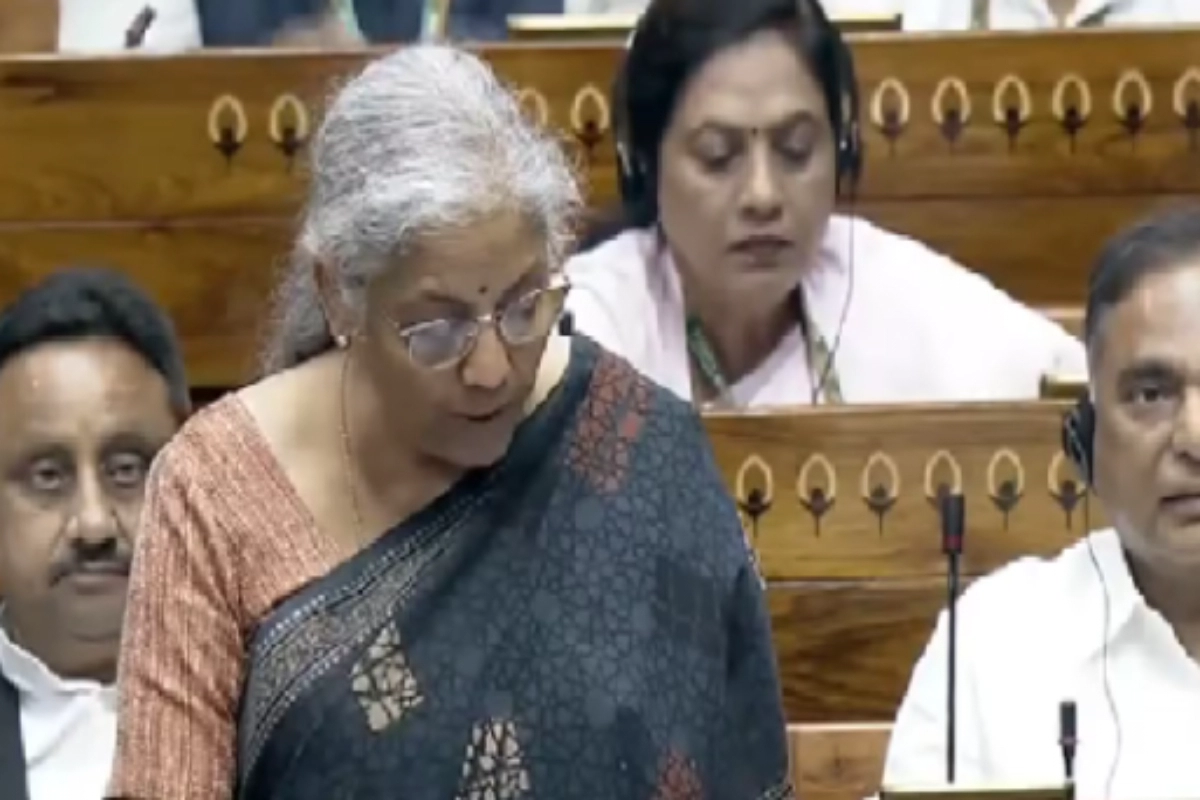Economic Survey 2024: Union Finance Minister Nirmala Sitharaman presented the Economic Survey for 2023-24 in the Lok Sabha on Friday. This document, brought out every year by the Economic Division of the Department of Economic Affairs, is assisted and guided by the Chief Economic Adviser. It contains a detailed review of the state of the economy and an outlook on the short- to medium-term prospects. Part of the budget papers first in the year 1950-51, the Economic Survey got separated from the Union Budget in the 1960s and the tradition of allocation is a day prior to the Budget.
Projections for Economic Growth
The baseline projections of Economic Survey 2023-24 hinge around a very conservative real GDP growth of 6.5 to 7 per cent for FY25. These projections rest over balanced risks underlying this expectation, even as market expectations are largely higher. The Reserve Bank of India and the International Monetary Fund, too, have forecast in their own turns that in order for consumer price inflation to achieve the said rate, it will be smooth till FY26, which requires normal conditions of a monsoon and no shocks from the external or policy environment. The RBI projects the headline at 4.5% in FY25 and 4.1% in FY26; in comparison, IMF professionals an inflation rate of 4.6% in 2024 and 4.2% in 2025.
Equally important, the Survey also lays the estimate on the growth in remittances to India at 3.7% to USD 124 billion in the year 2024 and by 4% to USD 129 billion in the year 2025. Unhealthy diet is also emphasized to be having heavy impact on the disease burden of India by 54% coming from poor dietary habits, hence a call to several actions in a shift towards a balanced and diversified diet.
Foreign Direct Investment and AI Concerns
The Economic Survey raises the issue of debilitating uncertainties from artificial intelligence (AI), even though it speaks of realizing gains from greater FDI from China, towards improving participation in the global supply chain by boosting exports. Particularly, it says much work is yet to be done with respect to AI’s impact on the workers of all skills.
The Survey presents a benign short-term inflation outlook but points out the persistent deficits in pulses and the consequent price pressures. It points out that India’s capital markets remain resilient to global geopolitical and economic shocks and that they are acquiring increasing importance in India’s growth story. With the continuous transformation of the financial sector, it is important for vigilance to be exercised in leading with a safeguard for potential vulnerabilities being triggered by both internal and global sources.
Governance and Fiscal Management
The Survey posits that governments consider devolving some of their powers to experience an era of lightness and leanness. It applauds the government’s fiscal management since it has been a lot of gains through improved tax compliance, expenditure moderation, and digitization. FY24 is hailed due to the great performance in the banking and financial sector of India.
Inflation and Job Creation
According to Devendra Pant, chief economist, India Ratings, “Timely policy interventions by the central government and price stability measures by the RBI supported retail inflation at 5.4% in FY24, the least since the pandemic. This was led by a moderation in momentum to the core group of both goods as well as services. Core inflation in services eased to a nine-year low in FY24, and core goods also moderated to a four-year trough.”. However, seeing food inflation, it has inched up from 6.6 per cent during FY23 to 7.5 per cent during FY24.
However, as many as 29 out of 36 states and Union territories have recorded inflation below 6 per cent and only a minority above these levels, in tune with the trend of all-India average retail inflation edging lower from the previous year, FY23. The Economic Survey underscores the critical need for job creation, stating that India must generate 78.5 lakh jobs annually in the non-farm sector until 2030 to sustain its economic growth.
DON'T MISS
Agriculture and Credit
The Survey highlights the growth in Gross Capital Formation (GCF) of the agriculture sector, growing at the rate of 19.04% in the year 2022-23. It further observes that there is a marked cut in the share of non-institutional credit from 90% in 1950 to 23.40% in 2021-22, which indicates that there is a drift to more formal modes of credit.
He will be presenting the Economic Survey 2023-2024 reflecting the cautiously positive outlook on the Indian economy and underlining the need to remain in a state of constant vigil with the right strategic policy interventions. It will, therefore, very much be a guide for the policy maker and stakeholders as they navigate through the tough challenges ahead, taking care of the opportunities offered by such envisioned approaches toward sustainable and inclusive economic growth for the country.
Prudent Monetary and Trade Policies
The government’s prudent monetary and trade policies, supported by strong output growth, have been able to contain retail inflation at a four-year low of 5.4 per cent in FY24. The government also said that the IMF data on national accounts pegs the country’s retail inflation way lower than both EMDE and world averages for the years 2022 and 2023. It has also recommended revision in CPI with new weights and item baskets to further strengthen price stability. The cultivation of pulses and oilseeds can be scaled up by developing modern storage and processing facilities that help reduce persistent supply pressures that fuelled inflation.



